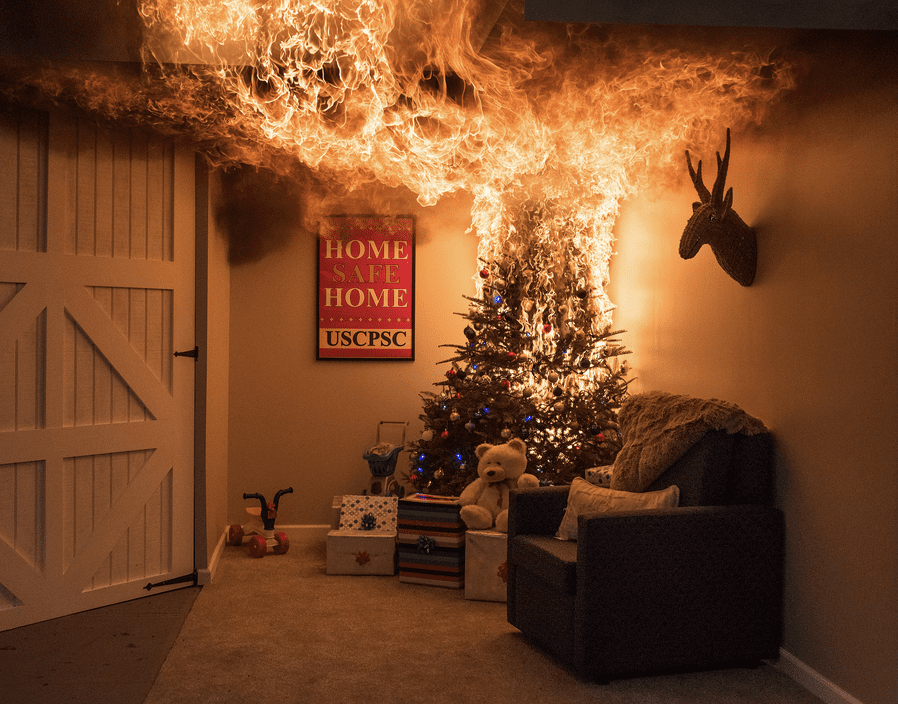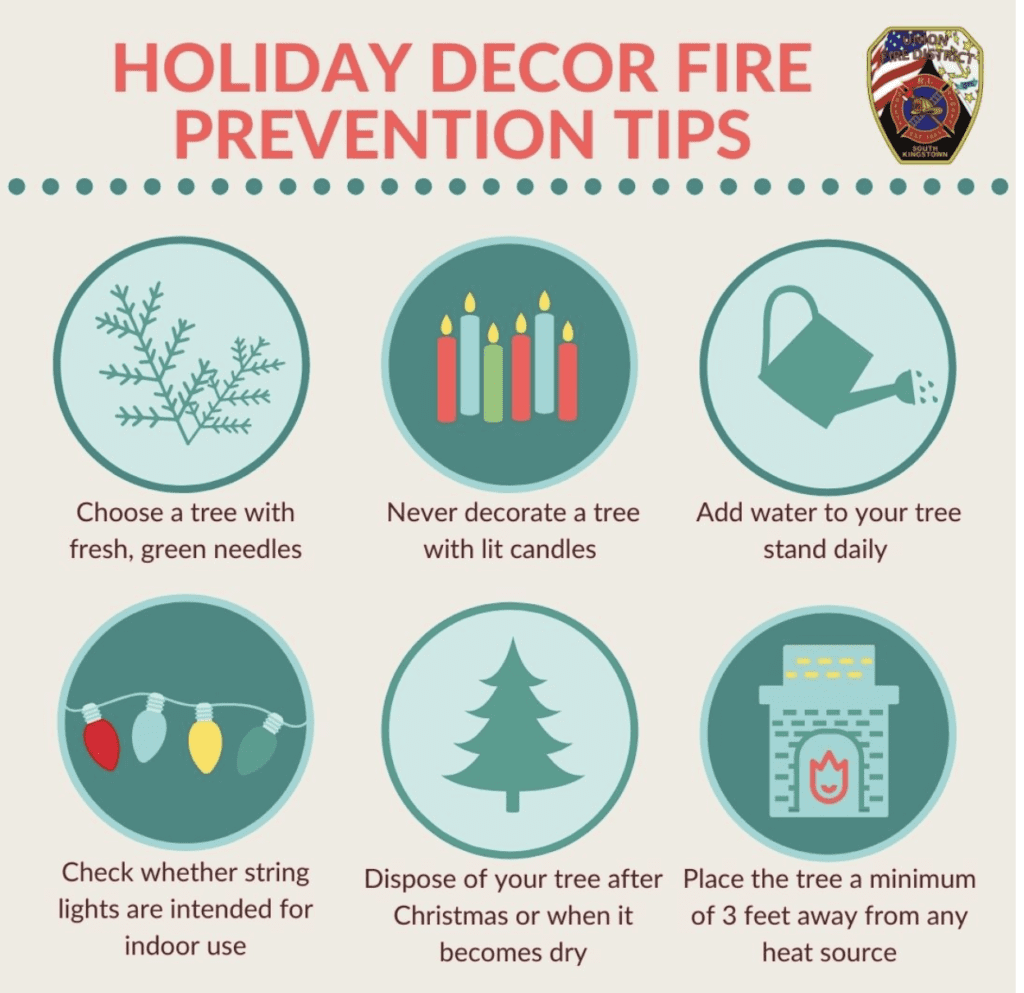Search Posts
Recent Posts
- Rhode Island Weather for June 1, 2025 – Jack Donnelly June 1, 2025
- To Do in RI: 26th Annual Rose Show of the Rhode Island Rose Society June 1, 2025
- Victory is ours: Victory gardens are blossoming again – Chuck Norris June 1, 2025
- Ask Chef Walter: The problem with “The Best” – Chef Walter Potenza June 1, 2025
- Gimme’ Shelter: Kava is waiting at the Providence Animal Control Center June 1, 2025
Categories
Subscribe!
Thanks for subscribing! Please check your email for further instructions.

Holiday fire safety tips from Union Fire District
Photo: Consumer Product Safety Commission
Chief Steven Pinch and the Union Fire District of South Kingstown is reaching out to the community with important fire prevention tips for decorating this holiday season.
According to the National Fire Protection Association (NFPA), fire departments across the country responded to an average of 790 home structure fires per year that began with decorations, excluding Christmas trees, in 2015-2019. During that same period, fire departments also responded to an average of 160 home fires per year that were started by Christmas trees.
While it is fun to decorate homes for the holidays, the Union Fire District wishes to share the following holiday fire safety tips from the NFPA:
Christmas Tree Safety
According to the NFPA, nearly one in five Christmas tree fires were started by decorative lights.
To prevent your tree from catching on fire, the Union Fire District offers the following tips:
Choose a tree with fresh, green needles. The needles should not fall off when touched.Cut two inches off of the bottom of the trunk. Place the tree a minimum of three feet away from any heat source, including fireplaces, radiators, candles, heat vents and lights. Do not place the tree in an area where it may be blocking an exit. Add water to the tree stand daily. A dry tree is dangerous because it can catch on fire easily.Check whether your string lights are intended for indoor use and use lights that have the label of a recognized testing laboratory. Check your holiday lights to make sure they are not worn and do not have broken cords or loose bulb connections. Review the manufacturer’s instructions for the number of light strands to connect. Never decorate a tree with lit candles. Always turn off the lights on your tree before going to bed or leaving home. Dispose of your tree after Christmas or when it becomes dry. Dried out trees are a fire hazard. Do not keep a tree that has become dried out in your home or garage, or lean it up outside against your home.
Candle Safety
Candle fires peak in December and January with 11% of candle fires reported in each of these months according to the NFPA. During this time, Christmas is the peak day for candle fires with roughly 2.5 times the daily average. To ensure your candles do not start a fire, consider the following:
Keep children and pets away from lit candles. Consider using battery operated candles around children.Place candles in a sturdy candle holder and on a surface that is also sturdy and uncluttered. Place candles a minimum of one foot away from anything flammable. When lighting a candle, take care to keep your hair and loose clothing away from the flame. Do not burn a candle all the way down. Before it gets too close to the holder or container, put it out. Never use candles if a member of your household uses oxygen. Matches and lighters should be stored in a locked cabinet.An adult should supervise any time candles are being used. Do not pass handheld candles from one person to another. Do not place lit candles in windows where a curtain or blind could catch fire. Blow out candles before you leave a room or go to sleep. Avoid using candles in areas where people may fall asleep, such as bedrooms. Residents are reminded to test their smoke alarms monthly.
General Holiday Decoration Safety Tips
Community members should also be mindful of the decorations, such as figures or string lights, they’re displaying around their homes this holiday season. Seek out holiday decorations that are flame resistant. Be careful about the placement of decorations, and be sure to keep them away from lit candles and other heat sources. When using string lights outside, make sure they are designed to be used outdoors. Some string lights are designed for indoor use only. Hang lights using clips, not nails, so that the cords do not get damaged. Do not place decorations in the way of windows and doors. Before going to sleep or leaving your home, turn off all light strings and decorations.For any other questions on holiday fire safety please visit NFPA.org.

